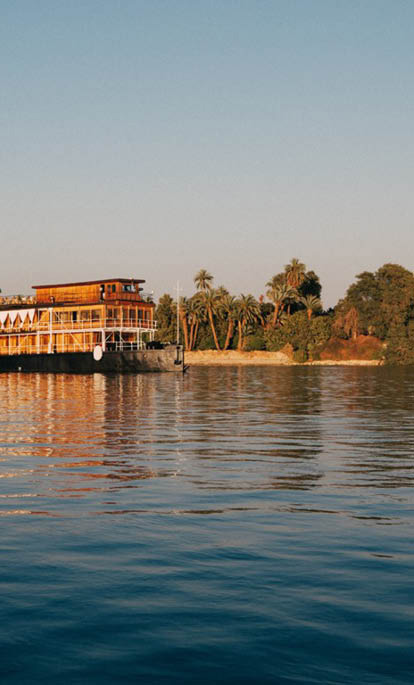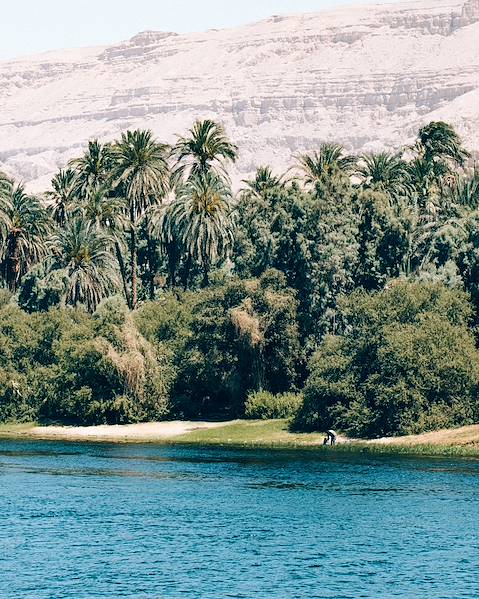Understanding sustainability in Egypt begins with appreciating its rich history of environmental stewardship. Ancient Egyptians revered nature and recognised the importance of living in harmony with the environment. From the construction of the Great Pyramids to the development of sophisticated irrigation systems, their sustainable practices laid the foundations for a successful future. Today, like many countries, Egypt faces a range of challenges, including rapid urbanisation, water scarcity, waste management and air pollution. However, these challenges also present opportunities for innovations and sustainable solutions. The Egyptian government, along with various organisations and individuals, is working to address these issues and create positive change. And if you’re keen to learn more about this, read on for our guide to sustainability in Egypt.
Challenges and Opportunities
Egypt is highly vulnerable to heatwaves, increased soil salination, rainfall retention and desertification. About 90% of Egyptians live along the Nile River, which provides almost all of the population with drinking water. But the country is facing an annual water deficit and is estimated to be officially water scarce by 2025, according to the United Nations. Egypt’s Nile Delta and coastal front on the Mediterranean are at risk of shoreline changes from subsidence, erosion and accretion, as well as sea levels rising due to climate change. Heavy rains can also often result in flash floods and without adaptation, agricultural practices, tourism and coastal communities will be at risk. To support the move to a greener, more climate-resilient economy, the government has launched the National Climate Change Strategy.
Water Management
A key part of this strategy is to use the region’s first sovereign green bond to finance projects in clean transportation and sustainable water management. Initiatives to promote efficient water control include the modernisation of irrigation systems and the adoption of drip irrigation techniques. These efforts aim to reduce water waste and increase agricultural productivity while preserving precious water resources. In order to deal with the rising water stress, the country has also explored adaptation activities, such as building desalination plants and infrastructure for flood control.
Renewable Energy
Egypt possesses an abundance of land, sunshine and high wind speeds, making it a prime location for renewable energy projects. Representing some of the most significant strides towards sustainability in Egypt, the country has harnessed the sun’s energy through large-scale solar projects. The Benban Solar Park, located in the Aswan Governorate, is one of the world’s largest solar installations, generating clean energy and reducing carbon emissions. Additionally, wind farms along the Red Sea coast contribute to Egypt’s renewable energy revolution. Over the past two decades, Egypt has doubled its wind energy production and aims to increase the share of renewable energy to 42% by 2035.
Biodiversity and Sustainable Agriculture
Most of Egypt’s population lives on a small stretch of fertile land and over a third of the country’s labour force works in agriculture, while the tourism sector also depends heavily on natural resources; any imbalance in nature therefore affects everyone’s economic and social wellbeing. Egypt’s latest national report to the Convention of Biological Diversity states that biodiversity in the country is declining due to myriad manmade factors, including pollution, habitat loss, overexploitation and unsustainable use of natural resources and climate change. Organic farming is gaining momentum in Egypt, with farmers embracing sustainable practices that minimise the use of chemical fertilisers and pesticides. The shift towards organic agriculture not only benefits biodiversity and the environment, but also promotes healthier food choices for consumers.
Waste Management and Recycling
Waste management is another pressing issue in Egypt, with the country generating a significant amount of waste daily. Efforts are underway to tackle this challenge and promote recycling. Initiatives have been introduced in cities like Cairo and Alexandria, encouraging citizens to separate their waste and divert recyclable materials from landfills. Additionally, innovative projects are emerging, such as upcycling workshops that transform waste materials into beautiful and functional products.
Sustainable Tourism
Until recently, scant attention was paid to the environmental impact of the millions of tourists who visit Egypt each year. Thankfully, this has started to change. The government has established 21 protected areas, and foreign donors such as the European Union have contributed capital to develop them on behalf of future generations. The best known of these protected spaces are St. Catherine protected area, Ras Mohamed National Park and the Wadi Rayan protectorate. Several resorts on the Sinai Peninsula, along the Red Sea coast between Gouna and Marsa Allam, and in Cairo have started to participate in environmental certification programmes designed to assess their environmental footprint and maximise their sustainability.
Education and Awareness
Education and awareness play a crucial role in fostering a sustainable mindset among Egyptians. Schools and universities are incorporating environmental education into their curricula, teaching students about the importance of conservation, renewable energy and waste reduction. Additionally, local NGOs are working to raising awareness of environmental issues and train tourism workers to help preserve the natural bounty on which their jobs depend. Actionable awareness extends to visitors too. Apart from staying in low-consumption facilities, consider carbon offsetting as a way of reducing the overall impact of your trip. Choose forward-looking companies that embrace responsible development practices, helping preserve destinations for the future by working alongside local people. Our experts can help you plan a trip that leaves as small a footprint as possible on the places you visit.
As you can see, the journey towards sustainability in Egypt is far from over. Continued efforts, collaboration and individual actions are essential. If you’re interested in travelling responsibly, we can let you know about the destinations, properties and experiences that are taking admirable actions to help Egypt realise its sustainability goals.
















